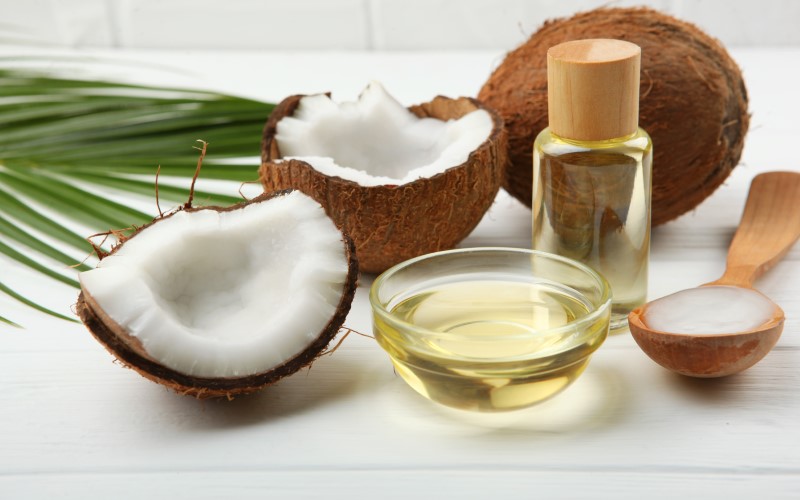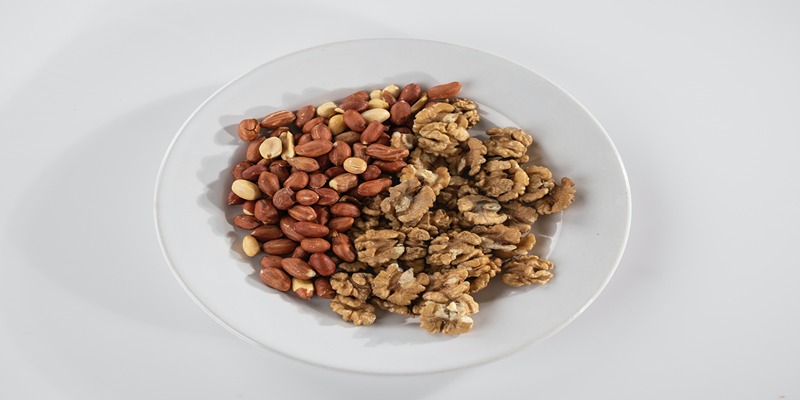Why Palmitic Acid in Coconut Oil Is More Important Than You Think
Mar 13, 2024 By Madison Evans
When discussing coconut oil, much attention is typically directed towards its saturated fat content and its potential health advantages. However, one essential constituent tends to be disregarded amidst this focus: palmitic acid. In coconut oil, palmitic acid is critical in numerous bodily processes crucial for overall wellness.
Its significance extends far beyond what meets the eye, making it imperative to delve deeper into the often-overlooked importance of palmitic acid within coconut oil. Let's uncover why palmitic acid warrants more recognition and appreciation than it typically receives.
Understanding Palmitic Acid:
Palmitic acid, prevalent in natural sources like coconut oil, is a vital saturated fatty acid crucial for human physiology. Its unique molecular structure, lacking double bonds, ensures stability and functionality in the body.
This stability allows palmitic acid to participate in essential metabolic processes, serving as a reliable energy source and contributing to the structural integrity of cell membranes. Understanding its role provides insights into the intricate mechanisms underlying human health and well-being.
The Importance of Palmitic Acid:
The importance of palmitic acid extends far beyond its mere presence in coconut oil. This saturated fatty acid, often underappreciated, is a cornerstone of various physiological processes crucial for optimal health and well-being.
Energy Source: Palmitic acid is a concentrated energy source for the body. When metabolized, it yields more energy than other fatty acids, making it an efficient fuel for cellular processes.
Cellular Structure: Palmitic acid is a crucial building block for cell membranes. It contributes to cell membranes' structural integrity and fluidity, ensuring proper cell function and communication.
Hormone Production: Palmitic acid plays a role in hormone synthesis, including the production of steroid hormones like cortisol, aldosterone. These hormones regulate various bodily functions, including metabolism, immune response, and stress management.
Nutrient Absorption: Palmitic acid facilitates the absorption of fat-soluble vitamins A, D, E, and K, essential for immune system regulation and bone health, among other functions, as well as other fatty acids.
Palmitic Acid in Coconut Oil
Palmitic acid, a notable constituent of coconut oil, contributes significantly to its nutritional profile and health benefits. Found alongside other fatty acids like lauric and myristic acids, palmitic acid enriches coconut oil with its diverse functionalities. This saturated fatty acid is crucial in providing energy for bodily functions, supporting cellular structure and integrity, and participating in hormone synthesis.
Palmitic acid is abundant within coconut oil, underscoring its importance in harnessing its potential health-promoting properties. Understanding the presence and significance of palmitic acid in coconut oil sheds light on its broader role in enhancing overall well-being. From culinary applications to potential health benefits, recognizing the role of palmitic acid enriches our appreciation for this versatile oil.

Debunking Myths Surrounding Palmitic Acid
Despite its importance, palmitic acid has often been demonized in the context of cardiovascular health. Some studies have linked high intake of palmitic acid with increased LDL cholesterol levels, raising concerns about its impact on heart health. However, it's essential to consider the broader context and distinguish between sources of palmitic acid.
Studies suggest that the impact of palmitic acid on cholesterol levels could differ based on its origin. While palmitic acid from processed foods and animal fats may pose risks when consumed in excess, palmitic acid in natural sources like coconut oil appears to have different metabolic effects. Coconut oil's unique composition, including its medium-chain triglycerides (MCTs) and other beneficial compounds, may mitigate the potential adverse effects of palmitic acid on cholesterol.
Moreover, the demonization of palmitic acid often overlooks its essential roles in cellular function, hormone synthesis, and nutrient absorption. Concentrating solely on its ability to raise cholesterol tends to the broader range of physiological functions and potential health advantages it may offer when included in a balanced diet.
Incorporating Coconut Oil into Your Diet
Incorporating coconut oil into your diet can be a simple yet impactful way to enhance your overall health and well-being. This versatile oil, derived from the meat of coconuts, offers a range of culinary and nutritional benefits.
Cooking: Use coconut oil instead of other oils or fats for cooking and baking. Its high smoke point makes it suitable for various cooking methods, from sauting to frying.
Smoothies: Elevate your smoothies by adding a spoonful of coconut oil for a luxurious, creamy texture. Not only does it enhance the mouthfeel, but it also provides a substantial dose of healthy fats, thanks to its medium-chain triglycerides (MCTs). This simple addition boosts flavor and nutrition, making your smoothie a satisfying and nourishing treat.

Salad Dressings: Elevate your salads with homemade dressings using coconut oil as a base. Blend coconut oil with tangy vinegar, fresh citrus juice, aromatic herbs, and spices for a burst of flavor. This dressing enhances the taste of your greens and adds a nutritious touch to your meal, making each bite a delightful experience.
Snacks: Create nutritious homemade energy bars or granola using coconut oil as a binding agent. Its rich texture and delicate coconut taste elevate the flavor profile of your snacks. Not only do these treats satisfy your hunger, but they also provide a healthy boost of energy to keep you going throughout the day.
Conclusion:
Palmitic acid is crucial for overall health but is often overshadowed within coconut oil. Serving as an energy source, aiding cellular function, and participating in hormone synthesis, it's indispensable for optimal physiological processes. Despite lingering concerns about its cholesterol impact, understanding its broader metabolic effects and nutritional advantages is vital.
Recognizing the multifaceted roles of individual nutrients as we navigate nutrition complexities is essential. Embracing a balanced approach to dietary fats, such as those in coconut oil, supports long-term vitality. Incorporating coconut oil into cooking routines offers a simple yet impactful way to benefit from palmitic acid and other essential nutrients, highlighting its significant contributions to health.

Top 10 Cool Tips For Flawless Skin Secret Revealed

Dark Spots on Face: Unpacking Potential Causes and Treatments

How Meditation Alters Your Perception of Time

How to Get Rid of Hives: 9 Natural Remedies You Must Try

Health Comparison: Alkaline Water Versus Regular Water

Retinol: The Truth Behind 5 Common Myths

Exploring Prime Health Benefits of Swimming Regularly


